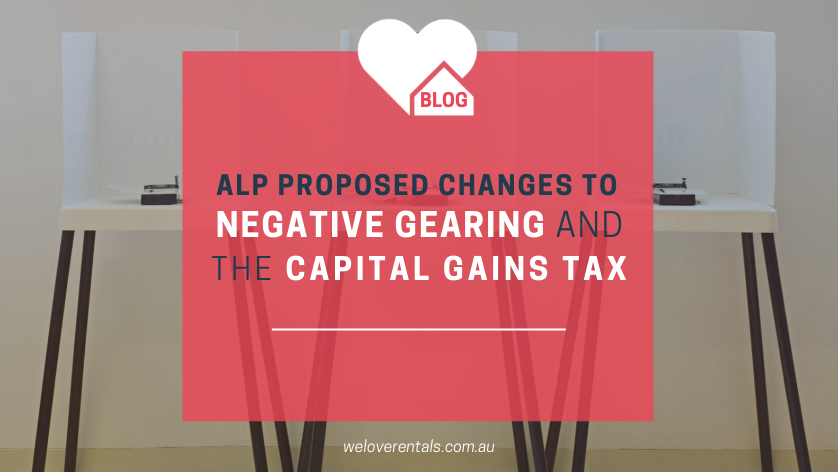
ALP’s Proposed Changes To Negative Gearing And The Capital Gains Tax (CGT)
ALP’s Proposed Changes to Negative Gearing and the Capital Gains Tax (CGT)…
The Federal Election is just around the corner, and it’s all about property! Here are a few updates on the Australian Labor Party (ALP)’s proposed policy changes to help you stay informed…
- Negative gearing update… hear from property analyst Louis Christopher.
- Capital Gains Tax (CGT) changes – who it will impact, and what the experts are saying.
ALP’s proposed changes to negative gearing…
If elected the ALP will limit negative gearing to newly built housing from January 1, 2020.
Will existing landlords be affected?
All investments made before this date will not be affected by the proposed changes, so if you are a landlord you will still be able to claim deductions on your investment property (or properties) against your other income.
But what about future landlords? How will the policy change impact them and the Perth market?
According to Managing Director at SQM Research, Louis Christopher, such a tax change during a housing downturn is a risky move for the economy. If the policy changes go forward, he predicts:
- Dwelling prices will fall. There will be less demand for real estate in the market between 2020 to 2022.
- Rents will remain steady initially, but will then increase 7%-12% between 2020 to 2022, provided there is an interest rate cut. Perth and Brisbane are forecast to record the largest rises in rent.
- Investors purchasing new property may experience losses on a resale in the first three years of the property’s life.
As a result, Christopher warns that the proposed changes to negative gearing should be rolled out as part of a wider property tax reform, and phased in slowly over time.
>>> Are you planning to negative gear your investment, but haven’t found a tenant yet? Find out how you can negatively gear an empty house…
ALP’s proposed changes to the Capital Gains Tax (CGT)…
The ALP is also proposing the Capital Gains Tax discount be cut from 50 per cent, to 25 per cent. This means that when you sell your investment property(ies), 75 per cent of the profit is taxable.
Will existing landlords be affected?
All investments made prior to January 1, 2020 will not be affected by the changes, which means if you are a current landlord, you will still be able to apply the full 50 per cent discount on your capital gains.
What are the experts saying?
Interestingly, a large majority of experts stand divided on both issues, regarding whom they will impact the most (first home buyers, mum and dad investors, and/or wealthy property moguls) and whether it will be positive for the wider Australian economy in the short and long term.
However, the latest CoreLogic figures reveal that housing prices have already experienced their biggest fall since the Global Financial Crisis, and many are worried both tax reforms (CGT and negative gearing) could cause a recession;
“If you were to make a material change to tax policy at the same time as banks are tightening lending standards, it could exacerbate what’s already a downturn into something more serious.”
– George Tharenou, Chief economist at UBS
Because of this, many are calling for the examination of a raft of tax breaks that distort borrowing – not just the capital gains tax and negative gearing.
What do you think?
Was negative gearing and/or the capital gains tax discount important when you considered investing? Let us know in the comments below.

